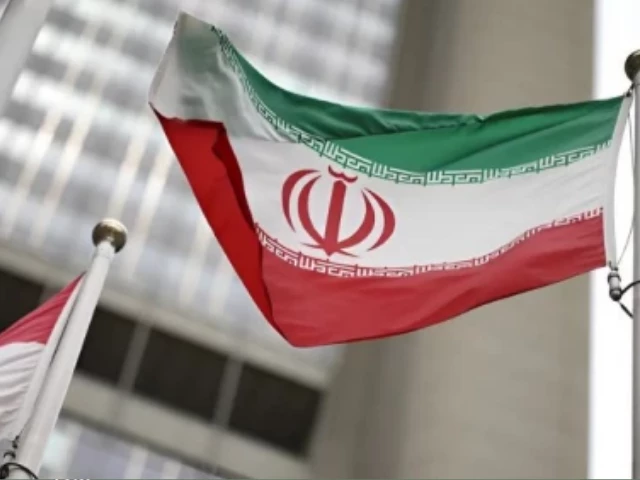Iran says made 'fair' proposal to avert sanctions snapback
E3 launched a 30-day process at the end of August to reimpose UN sanctions

Iran's Foreign Minister Abbas Araghchi said Friday that he put forward a "fair and balanced" nuclear proposal to European powers to prevent the return of UN sanctions on the Islamic republic.
Iran is "introducing a creative, fair, and balanced proposal which addresses genuine concerns and is mutually beneficial," Araghchi said on X.
He added that the proposal was made on Thursday to Britain, France and Germany, known collectively as the E3, as well as the European Union.
"Turning this idea into action can be prompt and resolve the respective bottom lines to avert a crisis," Araghchi said, arguing that "Iran cannot be the sole responsible actor".
The comments were made as the United Nations Security Council was set to vote Friday on reimposing biting economic sanctions on Tehran over its contested nuclear programme.
Read: France’s Macron says UN sanctions on Iran will be reinstated
Diplomatic sources expect that Iran does not have the nine votes needed to maintain the status quo and prevent the punitive measures from being reimposed by the end of the month.
The E3, signatories to a landmark 2015 nuclear agreement that lifted international sanctions on Iran in exchange for curbs on its nuclear programme, claim Tehran has reneged on its commitments under the deal.
The accord was intended to stop Iran from obtaining nuclear weapons, a goal that Western powers and Iran's arch-enemy Israel have long accused it of harbouring, but which it has consistently denied.
Formally known as the Joint Comprehensive Plan of Action, or JCPOA, the deal has been hanging by a thread ever since the United States withdrew from it in 2018 during Donald Trump's first term and reimposed sanctions on Tehran.
The withdrawal prompted Iran in 2019 to begin rolling back on its own commitments, including limiting access to its facilities by inspectors from the UN's nuclear watchdog.
12 day war
In June, Israel launched an unprecedented attack on Iran targeting nuclear and military sites, as well as residential areas, and killing more than 1,000 people, including senior commanders and nuclear scientists.
Iran retaliated with missile and drone attacks that killed dozens in Israel.
Read: Israel, Iran trade deadly fire as conflict enters fourth day
The United States briefly joined Israel's campaign for a series of strikes on key nuclear facilities before a ceasefire was reached after 12 days of war.
Last week, Iran agreed on a new framework for working with the UN's International Atomic Energy Agency (IAEA) after it suspended cooperation following the Israeli and US strikes.
The IAEA has warned that Iran is the only non-nuclear-armed country that enriches uranium to 60 percent, far beyond the 3.67 percent cap set by the 2015 deal, and a short step from the 90 percent required for a weapon.












1724319076-0/Untitled-design-(5)1724319076-0-208x130.webp)






COMMENTS
Comments are moderated and generally will be posted if they are on-topic and not abusive.
For more information, please see our Comments FAQ